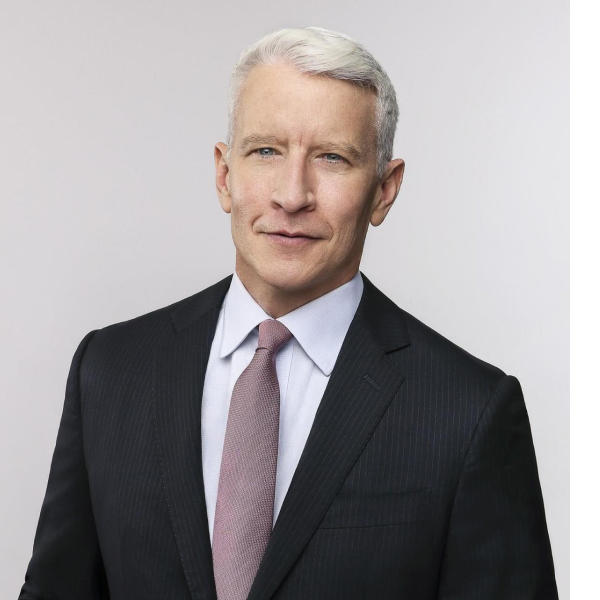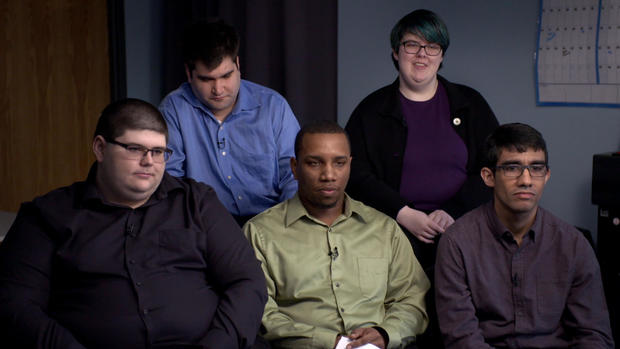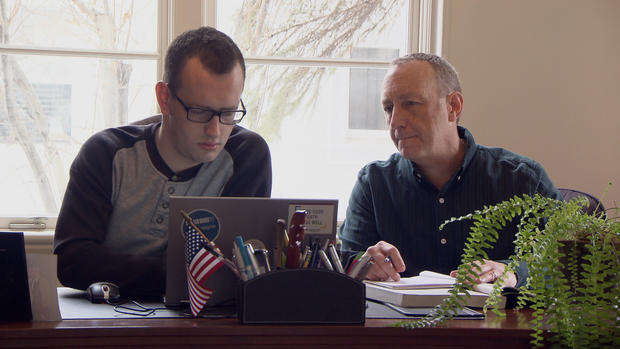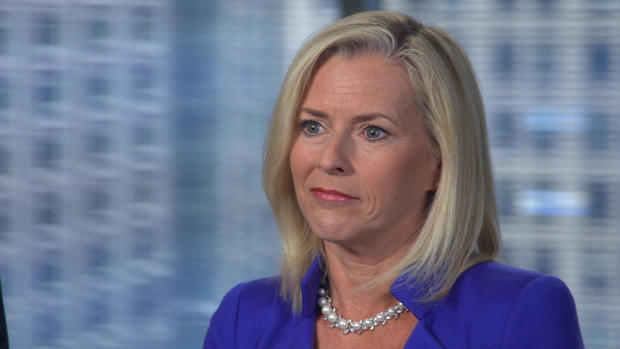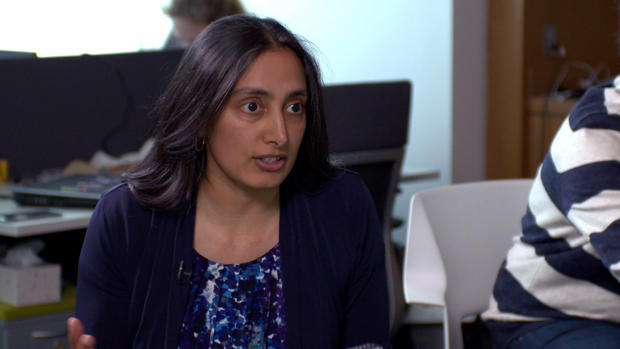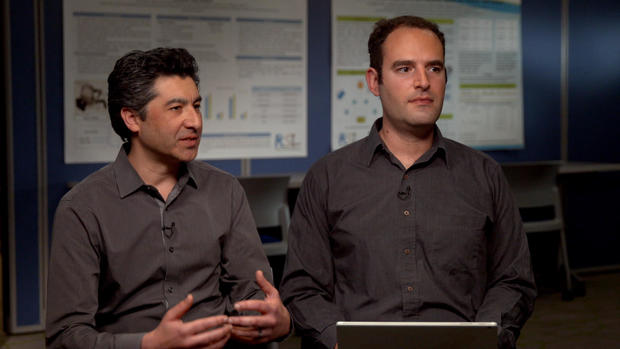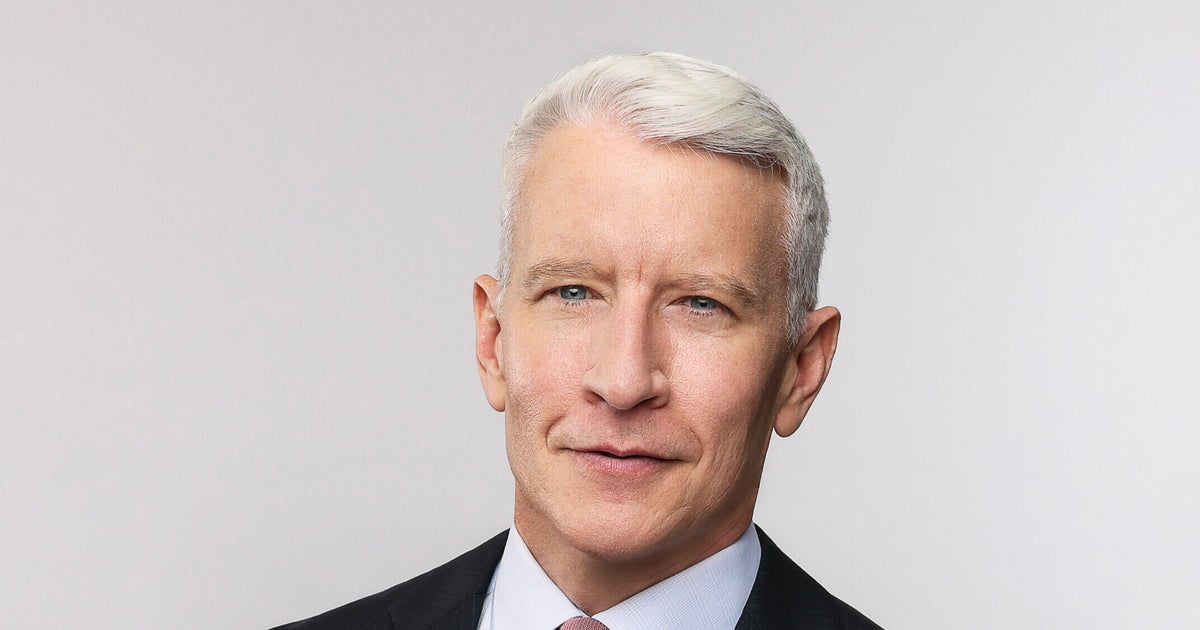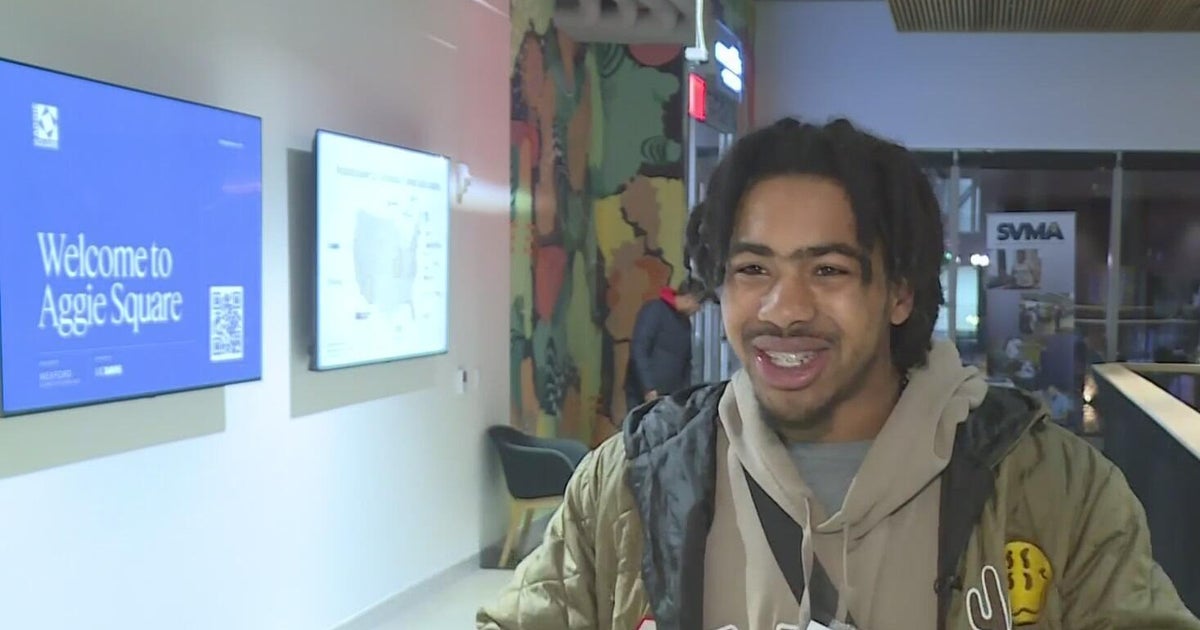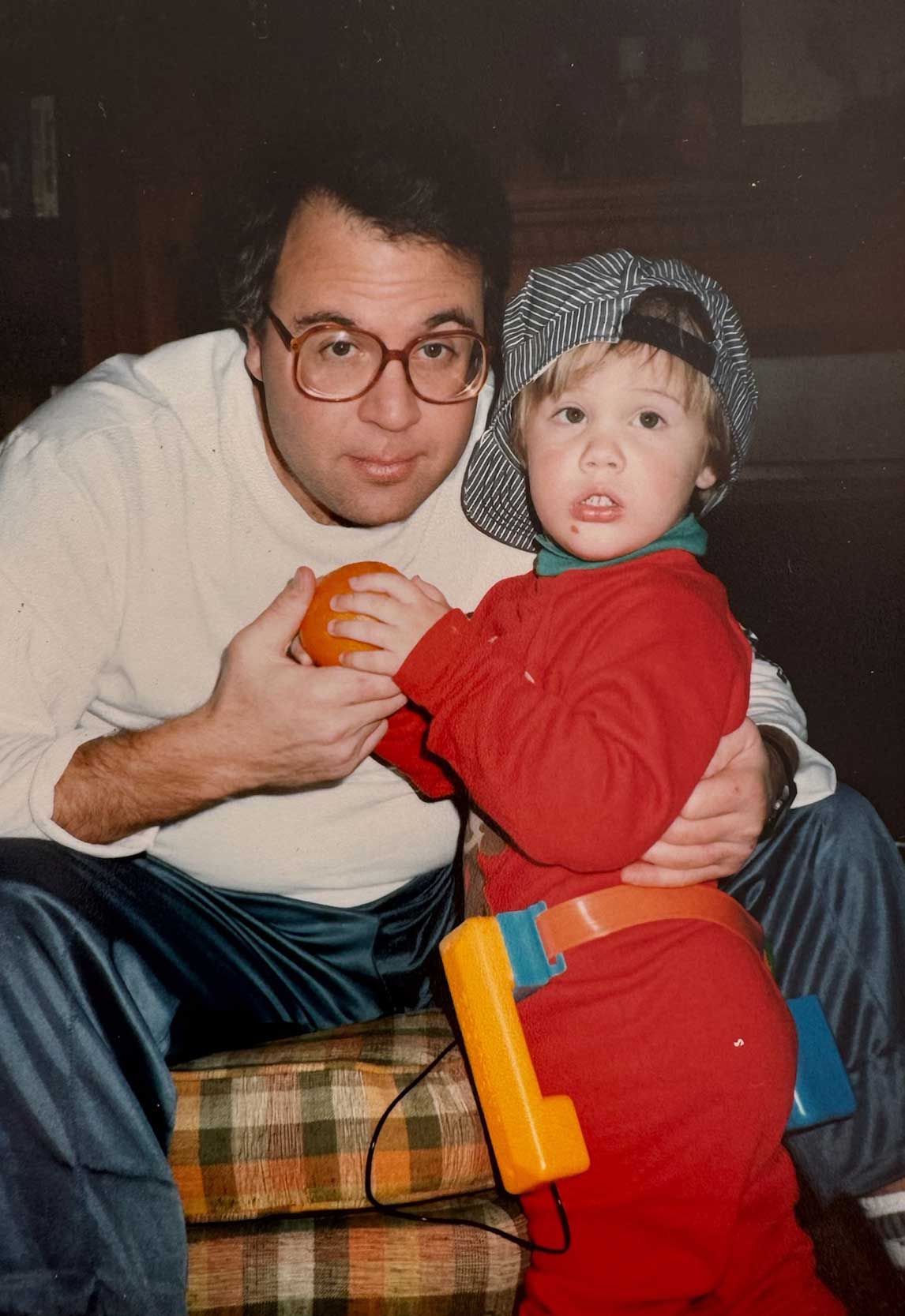Recruiting for talent on the autism spectrum
Autism is a developmental disorder that can affect how the brain processes information. People with autism have a spectrum of abilities and disabilities. Some are unable to speak, or care for themselves, while others can live on their own and have unique skills like excellent memory or attention to detail. No matter where they are on the spectrum, many adults with autism have a difficult time finding a job. Even making it past a first interview can be challenging. But that may be starting to change. As we found out, more companies are discovering the potential of people with autism, and some are now actively recruiting for talent on the spectrum.
Doing a television interview can be nerve-wracking for anyone, but for people with autism, it's potentially overwhelming. The cameras, lights, microphones, not to mention having to shake hands with a stranger.
But last winter, before the pandemic, five adults on the autism spectrum agreed to talk with us about their struggles finding work.
Erik Rolan: I was unemployed for three years. I just kept receiving one rejection after the other.
Erik Rolan has a bachelor's degree in sociology.
Anderson Cooper: How many jobs do you think you applied for?
Erik Rolan: Countless. I can't even count. About hundreds.
Anderson Cooper: How did that feel to get so many rejections?
Erik Rolan: Well, I felt useless. I felt like I wasn't getting anywhere with life.
Brian Evans and Phillip Mitchell were diagnosed with autism as young children. Sarah Klaich and Brennen Novak not until high school.
Anderson Cooper: How does being a person with autism make you different than a person who doesn't have autism? Do you see differences?
Phillip Mitchell: Oh, yes. I do see differences from person to person. With me, for example, I'm good with numbers and I'm good with mathematics.
Sarah Klaich: Differences in communication are pretty common from what I've seen, like, especially with like non-verbal communication like body language and stuff.
Anderson Cooper: What would you like people to understand about autism?
Sarah Klaich: The lack of or the ability to communicate doesn't equal intelligence.
Dave Friedman: Clearly they have talents and skills...
Dave Friedman hired Sarah and the four others at Autonomy Works, a tech firm he started in 2012 to proofread digital content and manage data for dozens of companies like Nike and Nissan. There are 32 adults on the spectrum here -- now working from home due to COVID-19 -- including Friedman's 25-year-old son, Matt.
Dave Friedman: Nothing beats sort of sitting in my office and looking over here and seeing Matt at work. And the job has really given him sort of a whole other purpose in life.
Anderson Cooper: Do you like the job?
Matt Friedman: Yeah. I like that it's a quiet office environment.
Anderson Cooper: Do you remember getting your first paycheck?
Matt Friedman: June 22, 2015.
Anderson Cooper: You remember the date? That's--
Matt Friedman: Yeah.
Anderson Cooper: Did you worry a lot about what would happen to Matt when he became an adult?
Dave Friedman: For a long time, we didn't. He's really talented with numbers, really good with detail, so we figured that there had to be jobs out there for him. What we found was-- was horrifying. Like there's-- there are no jobs.
Anderson Cooper: A child with autism reaching 18 or 21 and suddenly it's--
Dave Friedman: The cliff.
Anderson Cooper: People have talked about a cliff?
Dave Friedman: Yeah.
Anderson Cooper: Or graduating to their parents' couch?
Dave Friedman: Yeah. What ends up happening is they transition from a structured school setting into their parents' house with really very few prospects.
The idea for Autonomy Works came to Friedman when he was head of marketing at Sears. He oversaw hundreds of employees checking the accuracy of advertisements in newspapers.
Dave Friedman: And the thought occurred to me, "Matt could do this." This appeals to exactly the kind of way that Matt thinks and processes information.
Anderson Cooper: It's a lot of very small detailed information.
Dave Friedman: Yeah it seems like a small thing. It seems like $21.24 versus $29.24. But there's tens of thousands of dollars of costs that sit in that error.
Autonomy Works employees monitor more than 2,300 websites a month for accuracy and quality. Friedman says their extreme attention to detail has led to a 90% reduction in product and pricing errors. And they're so good at sustaining focus, productivity is up 30%.
Brennen Novak: I have a great memory and so when I do a task once I can usually produce it exactly the same way.
Anderson Cooper: Do you get bored?
Brennen Novak: For me, I don't get bored at all doing our work.
Sarah Klaich: Part of it is the repetition. I can get into, like, a rhythm with certain tasks.
Anderson Cooper: You like the rhythm?
Sarah Klaich: Yeah. If I was in a job that was constantly changing it wouldn't fit me very well because, like, my mind would be all over the place.
Not all people with autism would be able to work in an office environment like this. The Centers for Disease Control estimates about a third of people on the spectrum have significant intellectual disabilities.
Dave Friedman: Autism is a spectrum. It impacts people in a-- in a wildly different array of-- of ways, from people who are unable to feed themselves or care for themselves, all the way up to people where you would never even know that they were on the spectrum and don't-- can get through life without any sort of supports.
At Autonomy Works, employees can wear noise-cancelling headphones and take breaks in a quiet room, where lights are dimmed to reduce sensory overload. Friedman says the most important accommodation companies can make is to change the way they interview applicants on the spectrum.
Dave Friedman: For a person with autism, the first 15 or 30 seconds of an interaction are by far their worst. They're high anxiety about meeting a new person, trying to interpret interpersonal cues, trying to plan out a conversation to have with that person.
Anderson Cooper: And those first 15 seconds, that's when the other person, a job interviewer say, is making their first and lasting impression about someone?
Dave Friedman: Exactly. Hiring managers just aren't taking the time to go past that first 30 seconds and understand the skills, the talents, and the capabilities that exist within those individuals.
Shukla: There are complexities that are inherently inside of these very large data sets.
At the global accounting firm Ernst & Young, they've scrapped the traditional interview process for applicants with autism. They've replaced it with a series of problem-solving challenges…
Shukla: And so if I could ask you all to come up.
Testing aptitude, creativity, and teamwork.
Jayram: I think for this subject we should do analysis.
In a demonstration last February in Chicago, before the pandemic required they work from home, four current Ernst and Young employees on the autism spectrum were given millions of lines of data to quickly analyze, and explain how they'd present it to a client.
Stephen: If we find that there are errors, we can loop back over to this step.
Ernst & Young has used this technique to hire dozens of employees with autism who work around the world in fields like artificial intelligence, blockchain technology, and cybersecurity.
Anderson Cooper: Is this about corporate responsibility, doing the right thing, being altruistic?
Kelly Grier: Make no mistake about it, this is absolutely a business imperative, and it makes great sense from a business perspective.
Kelly Grier, Ernst & Young's U.S. chairwoman, says the employees they've hired have saved the company millions of dollars by looking at problems in a different way, and creating algorithms to shortcut and automate processes.
Kelly Grier: That is one of the things every one of our clients is focused on right now: How do they use data differently to create competitive advantages, or to stave off vulnerability? And it is a very, very rare skill set in high demand. There's still so many people on the spectrum that are underemployed or unemployed. And they've got this incredible talent that is going unused at the moment.
Last year Vanderbilt University opened the Frist Center for Autism and Innovation. A groundbreaking research center, where scientists and others are developing tools and technology to transform the workplace for people on the autism spectrum.
They're creating computer-simulated job interviews, specially designed driving challenges and a block design test to help a company assess a potential employee's visual problem-solving abilities.
Maithilee Kunda is a computer scientist at the Frist Center.
Maithilee Kunda: So, this is a wearable eye tracker. Right here and here are two little, tiny cameras and they're actually facing inward and they're recording your eyes.
The infrared cameras detect where your pupils are pointing.
Dan Burger, a data scientist at the center, who is on the autism spectrum, volunteered to take the block design test to compare his visual problem-solving abilities with mine. For 10 minutes he assembled a series of increasingly complex block patterns.
Next, it was my turn. Dan made it look easy. For me, it wasn't.
Anderson Cooper: At this point my head is hurting. Should it be hurting?
I completed the puzzles, but Dan did them faster and was more efficient.
How can you tell? Dan methodically placed the blocks left to right, line by line. And amazingly, he usually only had to look at the sample pattern once before placing a block.
I wasn't organized at all. I placed blocks randomly. And had to look back and forth 13 times at the sample pattern before figuring out how to place the last block.
Anderson Cooper: My mind is a sieve, essentially. Like, I'm not holding onto any of that information so I'm constantly having to refer back to the original. Whereas--
Maithilee Kunda: Right.
Anderson Cooper: --Dan, he memorizes it.
Maithilee Kunda: Yeah, it's very interesting--
Anderson Cooper: So, it's a completely different way of processing information or trying to solve problems?
Maithilee Kunda: Yes, yeah, it is.
Maithilee Kunda hopes employers might use tests like this to more accurately assess the capabilities of people on the autism spectrum.
Maithilee Kunda: You know, you imagine, like, TSA baggage screening is something that's super visual. Or when you're inspecting batteries coming off the line for quality control. So there's-- there's lots of different jobs that this is relevant for.
Dan Burger's unique abilities caught the attention of Keivan Stassun, an astrophysics professor at Vanderbilt. His son is on the autism spectrum, and Stassun helped start the Frist Center.
Anderson Cooper: Why did you want Dan here at the center?
Keivan Stassun: I brought him on board with my astrophysics research group originally because we were dealing with these massive amounts of data from space telescopes. And I needed help, from someone who had Dan's unique talents to help us look for patterns in data.
Anderson Cooper: So one of the skills that you have is looking at large amounts of information?
Dan Burger: I think my greatest skill is I see things differently from other people.
Keivan Stassun: This is a picture of the Seven Sisters.
Dan's challenge was to make sense of data from NASA's Kepler Telescope. His solution? He built an interactive software program called Filtergraph.
Keivan Stassun: Using Dan's software tool, we were just able to slice and dice the data, spin it around in different ways, until something visually popped.
What popped was a breakthrough in astrophysics. Dan's Filtergraph produced a new way of judging the size and age of stars based on how vigorously they flicker in the night sky.
Keivan Stassun: Dan may be too modest to tell you, but he is // the inventor of record of this platform. And NASA has licensed it--
Anderson Cooper: NASA is using Filtergraph--
Dan Burger: Yes.
Anderson Cooper: --that you invented?
Dan Burger: Yes.
Anderson Cooper: I mean, the brilliance that Dan, that you have, that's gonna become increasingly important. There's only gonna be more and more data coming down the road.
Dan Burger: And I feel like people who can understand the data, that's going to be more important.
Anderson Cooper: There's a lot of people who are unemployed who are on the spectrum. Do you have any advice for them?
Dan Burger: Oh, gosh. I feel like there are a lot of strengths to being on the spectrum. And I think imagination is a huge key trait.
We found about 30 large companies actively seeking employees on the autism spectrum, including Microsoft, JP Morgan and Ford, but there are still so many people with autism who are unemployed, and the numbers are growing. In the next decade, researchers at Drexel University estimate as many as 1.1 million Americans with autism will turn 18.
Back at Autonomy Works outside Chicago, Brian, Sarah, Brennen, Phillip, and Erik told us they hope more companies will start to recognize the untapped potential of people on the spectrum.
Anderson Cooper: What does having a job mean to you?
Brian Evans: For me, having a job is important because it provides me with much-needed structure in my life.
Phillip Mitchell: Having the job is important to me because otherwise I would become very financially dependent on my parent, asking them, "Can you buy me this? Can you buy me that?"
Brennen Novak: It's just been nice to be able to go home and talk to my parents about what I did during the day.
Anderson Cooper: Yeah. They must be very proud of you.
Brennen Novak: Yeah. They always say they're not surprised. So...
Produced by Denise Schrier Cetta. Associate producer, Katie Brennan. Edited by Daniel J. Glucksman.
